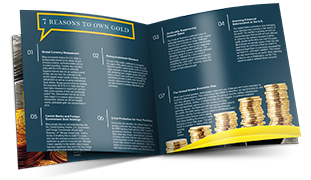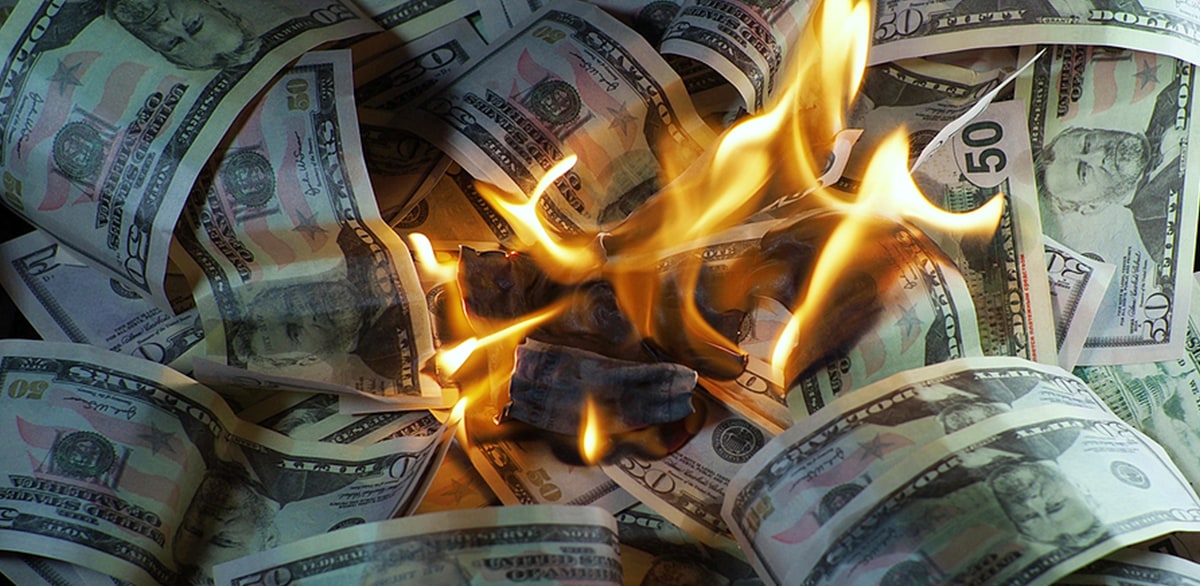
The COVID-19 pandemic and the resulting shutdowns sent shock waves throughout the world. With a third round of stimulus (and more money printing) on the horizon, the future of the American economy seems more uncertain than ever.
There is a growing consensus among financial analysts that inflation is on its way. While this isn’t something investors want to hear, staying ahead of this trend can allow you to hedge against inflation with gold before it erodes your savings.[1]
See financial expert inflation predictions below.
Key Takeaways
- What is inflation? The widespread increase in prices for goods and services across the economy.
- Why is inflation bad for the economy (and your portfolio)? Inflation eats away at the value of your money, so it takes more dollars to buy fewer goods.
- What are financial analysts predicting for inflation this year? It’s going up!
- Why buy gold? Gold can help you hedge against the corrosive economic forces emerging this year.
How Does Inflation Work?
How does inflation work. Why is it so bad? Where is inflation at in the U.S. now? Get answers below.
What Is the Definition of Inflation?
Inflation is a measurement used to determine the rate of price increase for goods and services within an economy. While prices of certain products might increase independently, this doesn’t necessarily suggest inflation. Typically, prices must go up for goods and services across the economy for it to be considered inflation.[2]
Why Is Inflation Bad?
When inflation occurs, prices for essentials, such as food and clothing, rise. This phenomenon can take a toll on society as the purchasing power of your money is diminished.
For example, if your savings accrued 7% returns in the stock market in one year, but inflation was at 3% during that time period, you’d only have 4% worth of actual returns. Unless you’ve properly diversified your savings, you’re essentially losing money when inflation occurs.[3]
What Is the Current Inflation Rate in the U.S.?
Currently, the yearly inflation rate within the U.S. economy is 1.4%, based on the 12 months ending in January 2021.
When Does Inflation Occur?
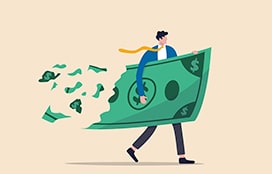
Generally, economists identify two primary forms of inflation: cost-push and demand-pull inflation. While both result in price increases across the economy, their causes are different.
Cost-Push Inflation
Cost-push inflation happens when the cost of production increases. A swift boost in wages or costlier raw materials can cause cost-push inflation.
Demand-Pull Inflation
Alternatively, when the demand for certain products and services increases faster than the economy’s rate of production, demand-pull inflation occurs. A central bank printing money might cause this form of inflation because flooding the financial system with money could result in a rapid increase in demand for goods and services.[4]
Does Printing Money Cause Inflation?
Printing too much money can lead to an inflation in prices as the purchasing power of the dollar decreases.
What Can We Predict about Future Inflation? 3 Expert Forecasts
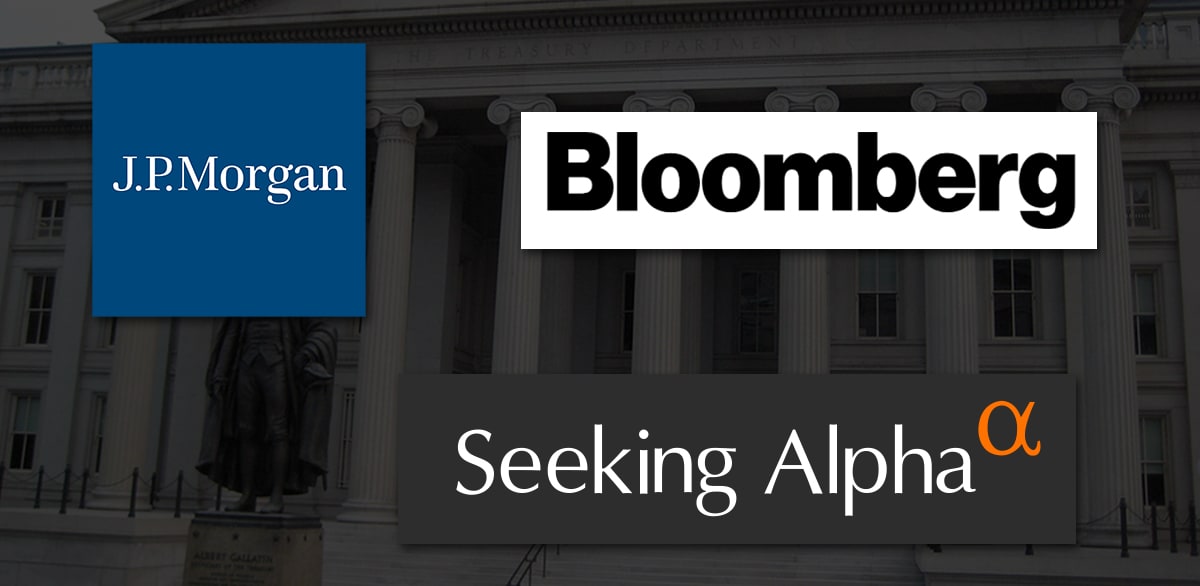
The consensus among financial analysts is that inflation could rise (as soon as spring 2021!), making now the time to start hedging with safe-haven assets like gold.
1. J.P. Morgan Predicts Fed to Stoke Modest Inflation. Urges Investors to Hold Hard Assets
J.P. Morgan analysts assert that, with the global economy still lagging—especially in labor-focused industries—the real risk today is that prices won’t increase quickly enough. In fact, analysts believe this is a more likely scenario than seeing them rise too rapidly.
Although the country is seeing a recovery in employment numbers, the amount of permanently unemployed workers remains high. As countries focus inward and the efficiencies of globalization wane, possible supply chain disruptions could lead to price hikes. J.P. Morgan’s analysts believes this will continue for several years.
To be sure, the inflation rate has already returned to pre-pandemic levels. But it’s still below the Federal Reserve’s 2% or higher target. In order to keep inflation within the desired range, central banks will need to continue providing support, i.e., printing money ad infinitum.
JP Morgan’s analysts state, “because policy rates will likely remain near zero for a few years, excess cash is not an investor’s friend, and yield will be hard to find.”
In order to increase your return, analysts recommend relying on preferred equities and high yield bonds. Additionally, investors should look to assets that perform well as inflation rises from lower to higher levels.[5] Gold is one such asset.
2. Bloomberg: Democratic Stimulus Spending to Send Inflation Expectations above 2%
Inflation will most likely hit the U.S. economy this year, says Michael Strain of Bloomberg. With Democrats controlling Congress and the White House, it’s expected that more spending will be put towards economic stimulus programs.
Will the Stimulus Cause Inflation?
It is thought that this increased spending will result in inflation.
As the pandemic slowly moves out of the spotlight, the economy has room to grow throughout 2021. And as more people get vaccinated, more consumers could feel confident enough to resume normal spending habits. Many market participants are excited about the Fed’s plan to keep interest rates low in the short term. This sudden influx of demand for goods and services against the backdrop of cheap money could contribute to inflation.
Another contributing factor to above-average inflation expectations is the Fed’s change to its monetary policy framework. The new framework is supposed to permit above-target rates of inflation for shorter periods of time. With this more liberal position, expectations of quicker price growth could lead to an actual surge in prices.
In terms of actual predictions, Michael says, “Two-percent inflation is currently expected by investors. A rate of 3% over a short time should, in my view, be considered a policy victory by the Fed and Congress, because it would suggest that their efforts to stimulate and support the economy are working. I think this range is completely plausible.”[6]
3. Seeking Alpha: “There Is Great Risk to Overshooting Monetary Stimulus and the Natural Market Forces Will Avenge.”
Jason Tillberg, writing for Seeking Alpha, notes how commodities have been rising overall as the prices for raw goods and consumer goods are up. As the world continues to open up, the demand for products will increase. And, as long as the Fed continues to put money into the economy, there will be sufficient funds to support demand for these products.
It’s thought that prices will continue to increase as well. In the third quarter of 2021, Tillberg predicts a “fierce inflationary force” resulting from the prices of commodities. He also thinks the dollar’s weakened state will only work to make these downsides even more severe. In March or April of this year, he sees year-over-year inflation being around 2.65%. However, he thinks inflation could reach over 3% later on.[7]
How to Invest for Inflation: Hedge with Gold
At this point, investors might want to think less about when and more about how to hedge against inflation. Leading financial analysts agree that inflation will hit the economy in 2021.
How Does Inflation Affect Investments?
As the power of the dollar decreases during inflation, the value of your investments also diminishes. While some investments might appear to yield an impressive return, you could end up losing money once adjusted for inflation. As an investor, you want to look to assets that aren’t as prone to value decreases during these economic times.
Gold: Your Inflation Hedge in 2021
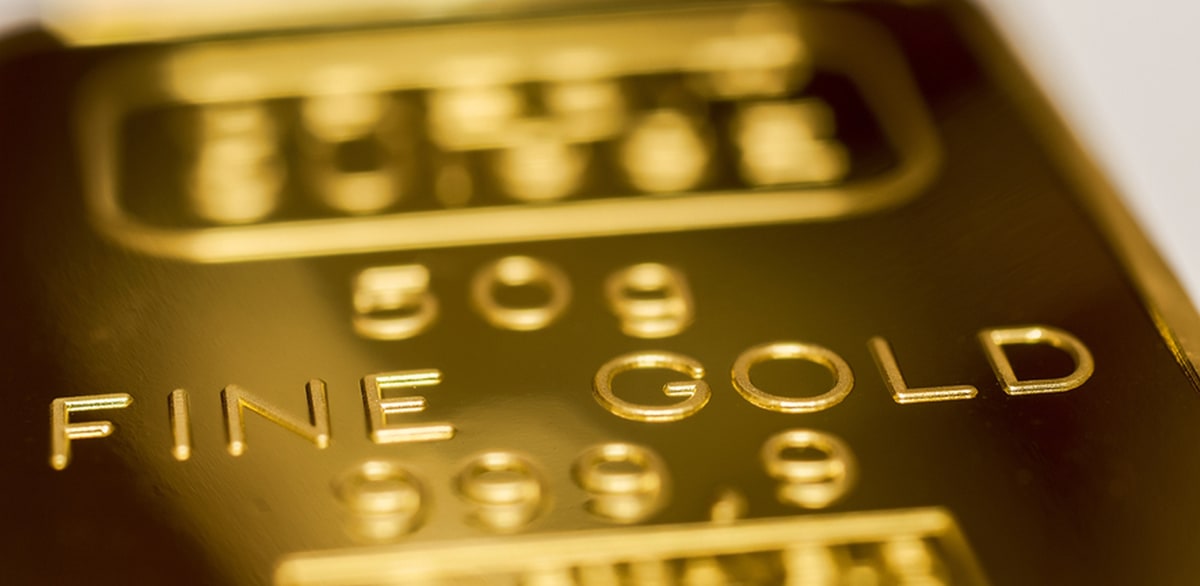
Gold is often considered a hedge against inflation since its value in U.S. dollars varies. In general, as inflation drives the value of the dollar down, it takes more dollars to buy the same amount of gold, and anyone owning gold could exchange it on the market for more dollars.[8] Thus, inflation is one of the factors influencing gold prices.
Unlike more vulnerable paper-backed investments, gold typically increases in value when inflation sets in, making it a great hedge for 2021.
See how to protect your portfolio with gold and silver this year. Request your FREE Precious Metals Investment Guide now.


